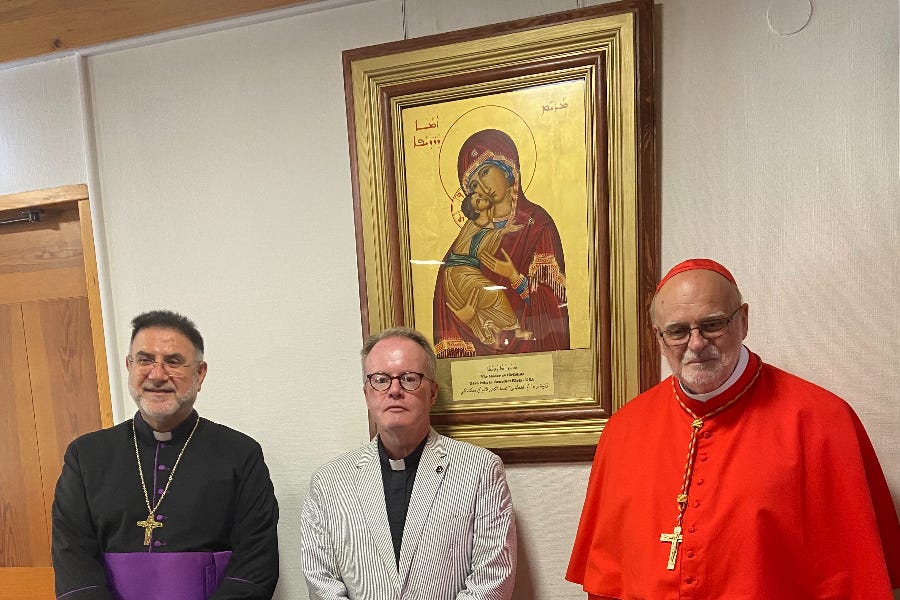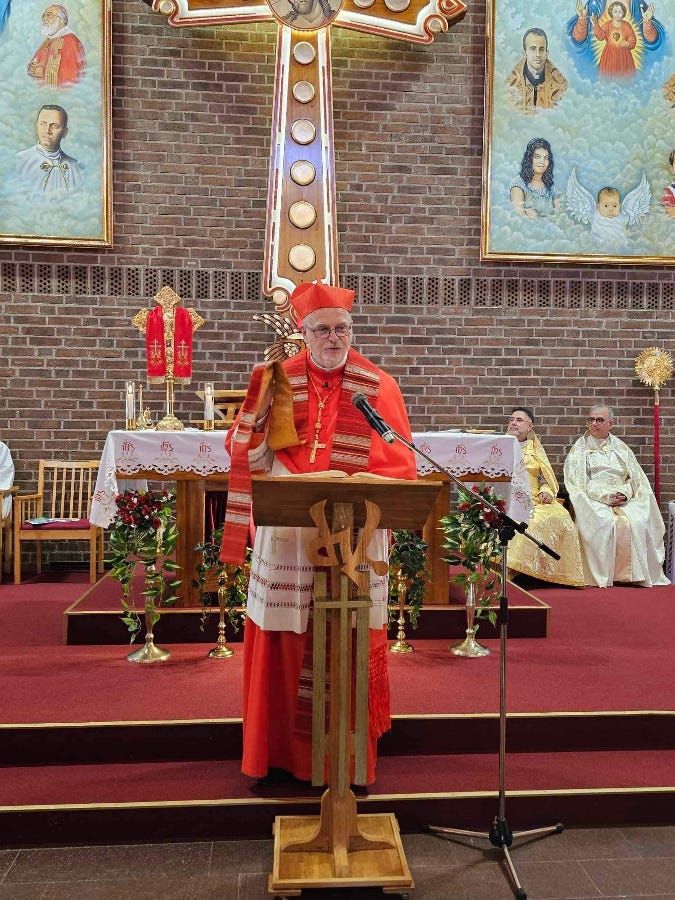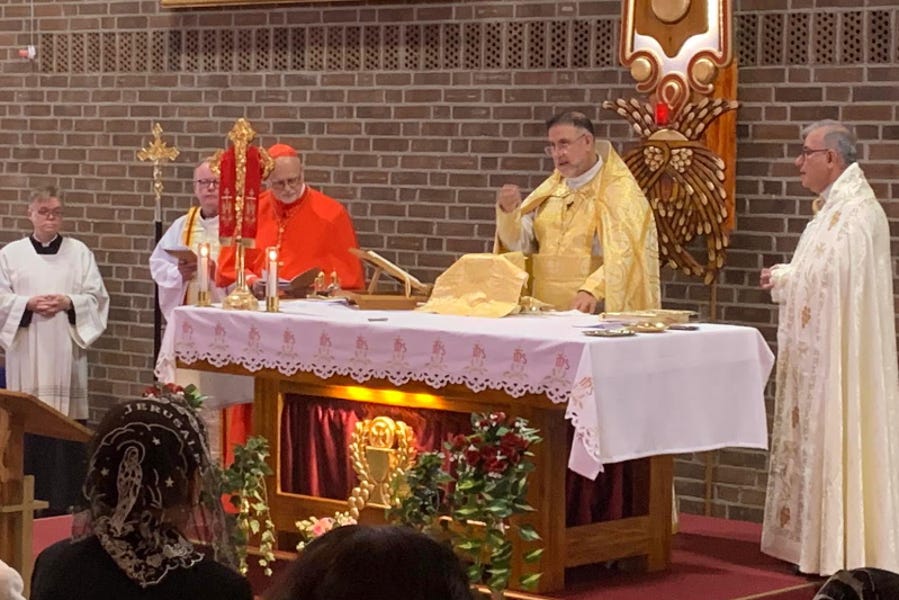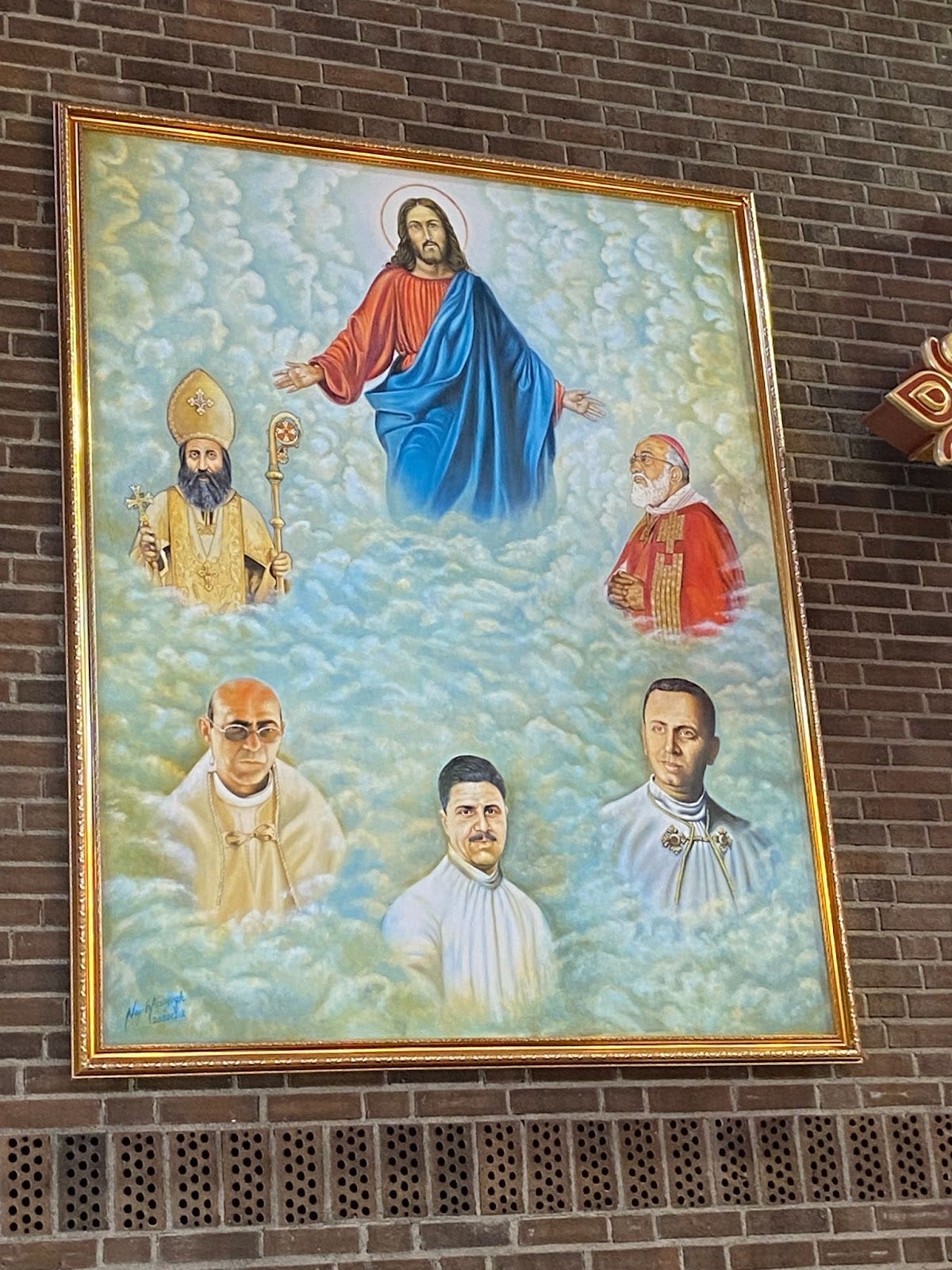
Sweden gains shrine to Mary, Mother of Persecuted Christians
The shrine, dedicated by Stockholm’s Cardinal Arborelius, will be a focus for prayer for the 1 in 7 Christians worldwide facing persecution.
Sweden’s Cardinal Anders Arborelius dedicated the country’s first shrine Saturday specifically for prayer for persecuted Christians.

The Bishop of Stockholm presided at the ceremony July 22 at the Holy Martyrs Syriac Catholic Church in Kista, a district in northern Stockholm.
The dedication of the icon of Mary, Mother of the Persecuted, was marked by a Syriac Catholic Eucharistic liturgy attended by hundreds of people, including members of the Syriac Orthodox Church, which belongs to the Oriental Orthodox communion, and Dominican Sisters originally from Iraq.
In a homily delivered in both Swedish and English, Arborelius said that Western Christians needed the witness of the persecuted as they faced the challenges of growing secularism.
He urged Catholics in Sweden — a country believed to be home to more than 120,000 Middle Eastern Christians — to pray to Mary, Mother of the Persecuted, especially that their young people would resist the lure of secularization.

The Holy Martyrs Syriac Catholic Church, also known as the Akalla Church, hosts what is believed to be the world’s fourth shrine explicitly intended for prayer for Christians facing active persecution around the world.
The first was at St. Michael’s Church in New York City in 2018, followed by Our Lady of the Assumption and St. Gregory in London, England, in September 2022, and St. John the Guardian of Our Lady in Clinton, Massachusetts, in October 2022.
According to Open Doors’ World Watch List 2023, one in seven Christians worldwide faces persecution and more than 5,600 Christians were killed for reasons related to their faith last year.

The new shrines to Mary, Mother of the Persecuted, are cropping up across the world thanks to Fr. Benedict Kiely, an English priest who founded the charity Nasarean.org in 2016 to help Middle Eastern Christians remain in their home countries through “mini micro-financing” enabling them to set up small businesses.
The icons of Mary, Mother of the Persecuted, are painted by Sr. Souraya, a Syrian nun of the Basilian order whose studio outside of the Lebanese capital, Beirut, was rebuilt with help from Nasarean.org.
Kiely told The Pillar in a July 23 email interview that the icons are offered to diocesan bishops for no charge. He stressed that the local ordinary’s support was essential for the establishment of new shrines as their backing demonstrates their commitment to prayer for persecuted Christians.
He said that he had been struck by the “very lukewarm response from many bishops in the U.S.” to the offer.
Kiely highlighted a 2020 survey conducted by Aid to the Church in Need-USA, which found that the persecution of Christians came last when respondents were asked to rank which global issues they were most concerned about, behind human trafficking, poverty, climate change, and the refugee crisis.
“This makes these shrines ever more urgent,” Kiely said.

The 60-year-old priest explained that the shrines had a twofold purpose: To offer a focus for people praying for persecuted Christians in Africa, Asia, the Middle East, and elsewhere, and to give Western Christians a place to pray for fortitude and strength amid rising intolerance.
He has previously acknowledged that there are other churches where Catholics remember Christians who have suffered for the faith, such as San Bartolomeo all’Isola in Rome, which is dedicated to the modern martyrs. But he contends that these sites are not shrines specifically for prayer for persecuted Christians today.
Kiely suggested that anti-Christian persecution did not feature prominently in the global synodal process leading into this October’s synod on synodality in Rome.
“Perhaps this focus on First World issues, while thousands of Christians are being martyred throughout the world, is a reason why these shrines are so important — to try to focus Western Christians on the plight of their brethren,” he said.
“There ought to be a synod on the worldwide persecution of Christians.”





Given that the first 5 minutes of a nuclear war will resolve the global warming problem for millenia, I'm amazed that Americans think it's more important than the martyrdom of modern Christians.